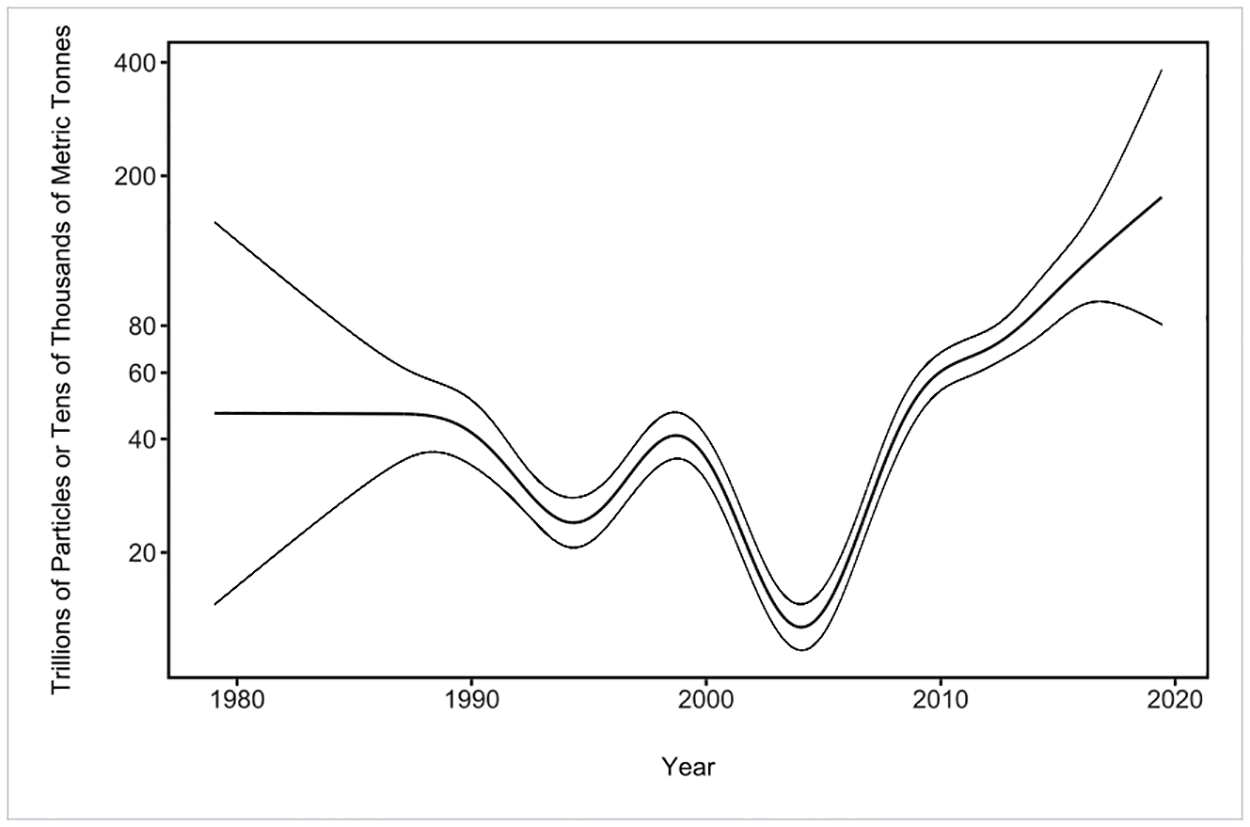The amount of plastic in the ocean rose sharply in the past 20 years, with no signs of slowing down, new research suggests.
—
About 171 trillion plastic particles – equivalent to about 2.3 million tonnes – were floating in the ocean by 2019, a new study showed.
The peer-reviewed paper, published Wednesday in the scientific journal PLOS One, relies on previously published and new data on floating plastics from 11,777 ocean stations across six major marine regions to estimate the amount of small plastics floating on the ocean’s surface from 1979 to 2019. Samples were collected by dragging a net with an extremely fine mesh for several miles across the ocean surface and analysed through a computer model.

Change in the abundance of ocean plastic from 1979 to 2019 in trillions of particles or tens of thousands of metric tonnes. Image by Eriksen et al. (2023).
Looking at trends over decades, researchers behind the study – which was led by Marcus Eriksen of California-based 5 Gyres Institute, a non-profit that campaigns to reduce plastic pollution – observed an “unprecedented” surge in the amount of plastic in the ocean since 2005 and suggested that the number could triple by 2040 if no further action is taken.
According to the study, the rise was driven by several factors, including a dramatic increase in global plastic production, more microplastics, and a lack of international laws regulating marine plastic pollution; researchers also warned that “cleanup is futile” unless we drastically cut plastic production.
Our reckless plastic use and consumption have driven the world to generate approximately 300 million tonnes of plastic waste each year to keep up with demand, with more than 8 million tonnes estimated to enter the ocean.
“We need a strong legally binding U.N. global treaty on plastic pollution that stops the problem at the source,” Eriksen said in a statement.
“We need preventative strategies and not just to focus on cleanup and recycling. We need to find replacements for single use [plastic] because recycling just doesn’t work.”
The paper comes just days after a landmark international treaty to protect biodiversity in the world’s high seas was agreed upon by UN member states in New York. While the new agreement would help conserve the ocean by banning and limiting fishing and other exploitative activities, it would not help tackle the issue of marine plastic pollution.
Negotiations for a framework for a global plastic treaty are currently ongoing but no agreement has been reached so far.
You might also like: 10 Plastic Pollution in the Ocean Facts You Need to Know


















